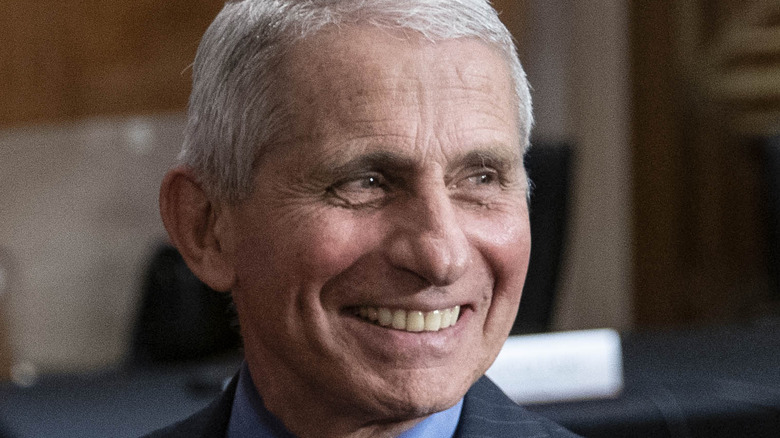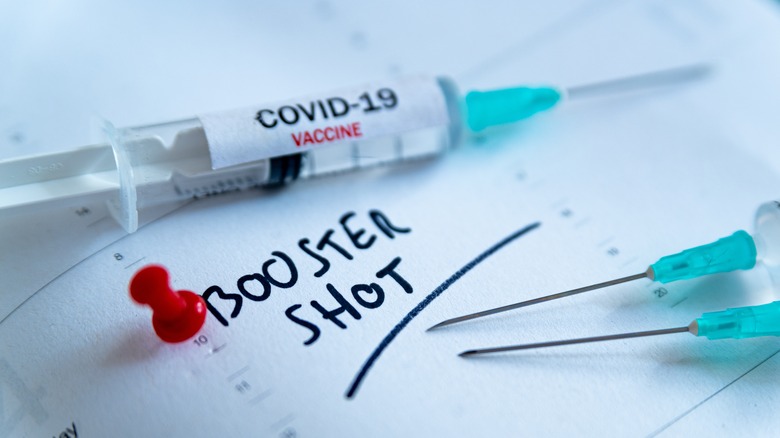Dr. Fauci Makes A Startling Prediction About Annual COVID-19 Vaccine Boosters
Dr. Anthony Fauci, director of the National Institute of Allergy and Infectious Diseases at the National Institutes of Health, has issued a hopeful prediction about the spread of COVID-19 and the way we will combat it moving forward into our new future. "As we get out of the full-blown pandemic phase of Covid-19, which we are certainly heading out of, [restriction] decisions will increasingly be made on a local level rather than centrally decided or mandated," he told the Financial Times. "There will also be more people making their own decisions on how they want to deal with the virus."
When the pandemic first started, many didn't know what to make of it. Most of us had never faced anything like it in our lifetimes. The world went into lockdown as scientists scrambled to come up with treatments, vaccines, or really anything that would get us "back to normal" or help us move into a post-COVID-19 world. Now years into the situation, it's become clear to many people that there really is no going back to the way things were before — though booster shots have helped (via NPR). Nevertheless, Fauci is of the opinion that booster shots will not actually be needed as often as initially thought.
Some people might not need an annual booster
Back in November, the United Kingdom's National Health Service made it clear that should a national COVID-19 vaccine booster be needed — much like an annual flu shot — they would be ready and able to provide that service (via BMJ). According to Fortune, Germany is also ready to offer such a service to its citizens, should the need arise. Nevertheless, Dr. Anthony Fauci is not so certain that we'll need to do the same in the U.S.
In his interview with the Financial Times, Fauci explained that relatively young and healthy Americans with no underlying health conditions "might need a booster only every four or five years" rather than annually. Fauci was careful to highlight that this is only for people who are not as vulnerable to COVID-19's most serious known effects, however.
His statement aligns somewhat with the World Health Organization's June 2021 forecast. "The WHO considers annual boosters for high-risk individuals as its 'indicative' baseline scenario, and boosters every two years for the general population,"reported Reuters.

